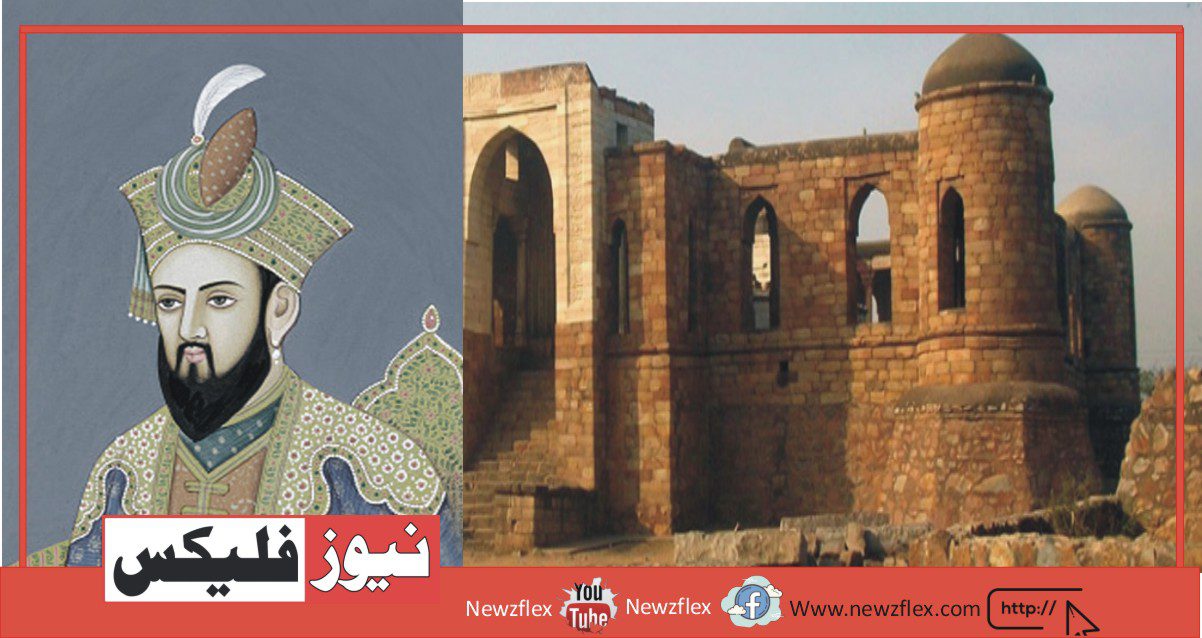
Nasiruddin Mahmood
Nasiruddin Mahmud was the posthumous child of the eldest son of Iltutmish Shahzada Nasiruddin. Because of his extreme love for the eldest son, Iltutmish gave the same name to his eldest son to his grandson.
Iltutmish wanted the young baby to be considered his son and not grandson for dynastic reasons. So we must always not be surprised at the fact he was called the son of Iltutmish all his life. Nasiruddin was a young lad of seventeen at the time of accession to the throne. He had no ambition to become a king but was rushed to the capital disguised as a woman together with his mother and was placed on the throne by the conspirators, who had killed Masud Shah. Balban was one of the patrons of Nasiruddin.
Nasiruddin was an informed and intelligent man of gentle and pious nature. He was dedicated to his faith and lived a virtuous life. He had never quite four living wives and no concubines. He kept himself busy with religious activities.
He was also a decent calligraphist, as a diversion, he wanted to write copies of the Quran which gave currency to the favoured belief that he made his living by selling his scripts alone. He adopted an attitude of complete self-surrender towards the person in power and played the task of puppet in their hands.
Rather it’d be more appropriate to mention that Nasiruddin was the constitutional Chief Executive of the Turkish oligarchy. That’s why he became more acceptable to all the nobles who were left absolved to settle the matters of state between themselves. As for because the independent status of Nasiruiddin is anxious, Isami tells us that the sultan expressed no opinion without their (Shamsi nobles) permission.
He didn’t move his hands or feet except at their orders. He stares clearly that Ulugh Khan (Balban) served the king and controlled all his affairs. The king lived in the palace and Ulugh Khan governed the empire.
ناصر الدین محمود
ناصرالدین محمود التمش کے بڑے بیٹے شہزادہ ناصر الدین کا بعد از مرگ بچہ تھا۔ بڑے بیٹے سے شدید محبت کی وجہ سے التمش نے اپنے بڑے بیٹے کا یہی نام اپنے پوتے کا رکھا۔ التمش چاہتا تھا کہ چھوٹے بچے کو خاندانی وجوہات کی بنا پر اپنا بیٹا سمجھا جائے نہ کہ پوتا۔ اس لیے ہمیں اس بات پر تعجب نہیں ہونا چاہیے کہ وہ ساری زندگی التمش کا بیٹا کہلاتے رہے۔
تخت پر فائز ہونے کے وقت ناصر الدین سترہ سال کا نوجوان تھا۔ اس کی بادشاہ بننے کی کوئی خواہش نہیں تھی لیکن اسے اپنی ماں کے ساتھ ایک عورت کے بھیس میں دارالحکومت لے جایا گیا اور سازشیوں نے اسے تخت پر بٹھا دیا، جنہوں نے مسعود شاہ کو قتل کر دیا تھا۔ بلبن ناصر الدین کے سرپرستوں میں سے تھا۔
نصیرالدین شریف اور پرہیزگار طبیعت کے پڑھے لکھے اور ذہین آدمی تھے۔ وہ اپنے عقیدے سے سرشار تھے اور نیک زندگی بسر کرتے تھے۔ اس کی چار سے زیادہ زندہ بیویاں اور لونڈیاں نہیں تھیں۔ اپنے آپ کو مذہبی کاموں میں مصروف رکھا۔ وہ ایک اچھے خطاط بھی تھے، ماضی کی طرح وہ قرآن کے نسخے بھی لکھتے تھے جس سے اس مقبول عقیدہ کو کرنسی ملتی تھی کہ وہ صرف اپنے رسم الخط بیچ کر اپنا گزارہ کرتے تھے۔
اس نے اقتدار میں آنے والے آدمی کے سامنے مکمل خود سپردگی کا رویہ اپنایا اور ان کے ہاتھوں میں کٹھ پتلی کا کردار ادا کیا۔ بلکہ یہ کہنا زیادہ مناسب ہو گا کہ ناصرالدین ترک حکمرانی کے آئینی چیف ایگزیکٹو تھے۔
اس لیے وہ ان تمام رئیسوں کے لیے زیادہ قابل قبول ہو گیا جنہیں ریاست کے معاملات آپس میں طے کرنے کے لیے آزاد چھوڑ دیا گیا تھا۔ جہاں تک ناصر الدین کی آزاد حیثیت کا تعلق ہے، عصامی ہمیں بتاتے ہیں کہ سلطان نے ان کی (شمسی رئیسوں) کی اجازت کے بغیر کوئی رائے ظاہر نہیں کی۔
اس نے ان کے حکم کے سوا ہاتھ پاؤں نہیں ہلائے۔ وہ واضح طور پر دیکھتا ہے کہ الغ خان (بلبن) بادشاہ کی خدمت کرتا تھا اور اس کے تمام معاملات کو کنٹرول کرتا تھا۔ بادشاہ محل میں رہتا تھا اور الغ خان سلطنت پر حکومت کرتا تھا۔








